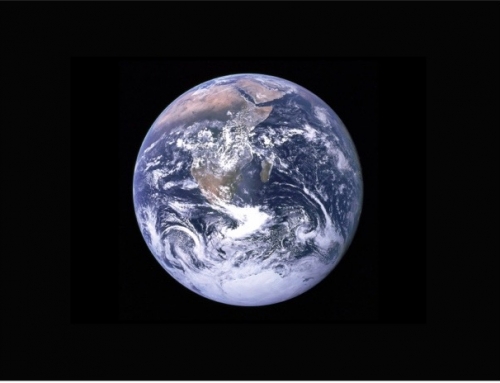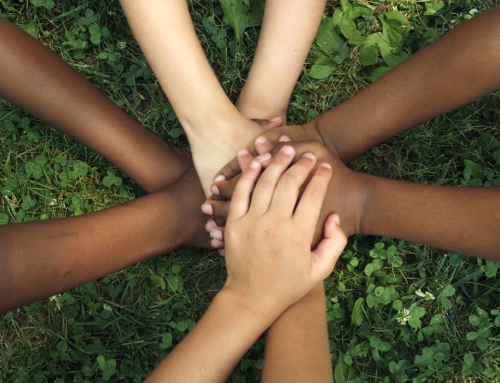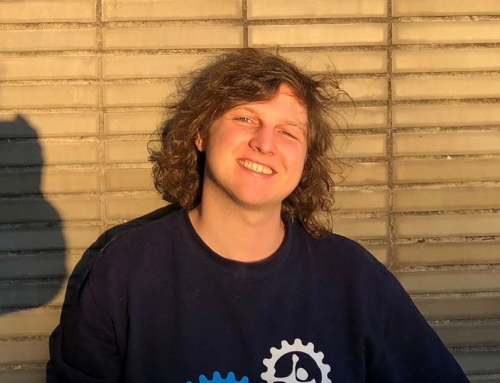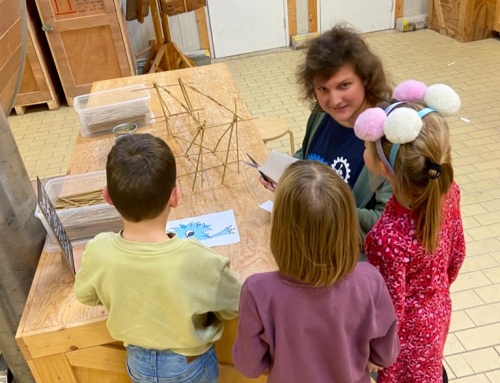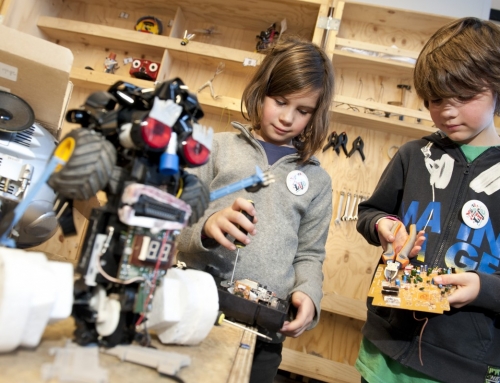‘Hey Emma, what do you study again?’ ‘I am a Social Innovation student, but no it is not what you think, I am not that ‘zweverig’. This is a situation I found myself regularly in over the last three years. Walking around at school, I got sick and tired of words such as vegetarian, sustainable, biological, ecological, climate changer or vegan. ‘That was totally not me’. For me, those words got put under the same headline as ‘geitenwollensokken’ people. Well, plot twist, tables have turned, look at me now, working on my graduation project which revolves around the circular economy. Something that used to definitely belong under the ‘geitenwollensokken’ headline. Fact is, I am crazy enthusiastic about my project and I think the circular economy is one of the most important things humanity should engage in: who have I become?
DECISIONS, DECISIONS…
Over the last few years, I dove into the concept of identity: who am I? I focused on the individual and later I focused on organizational identity because I believed, how can you know what you want to do when you do not know who you are? I came across the article by Corey Sousa: ‘The Real Problems Millennials Face: We Have Too Many Choices’ which stated that Too much choice is a bad thing. And that’s where we have ended up as millennials. Unfortunately for us millennials, we are the product of too much choice (Sousa, 2017). Afterwards, I came across an article by Jon Mertz which stated that Choices define who we are as a person: it shows our character to the world. To enhance the probability of making better choices and surviving bad ones, personal character and inner spirit play essential roles (Mertz, 2010). So, when our choices define who we are, and we as millennials experience too much choice, it gets more difficult for us to decide who we are and who we want to be.
MAKE WAY FOR THE COLLECTIVIST?
So, fast forward to the present. Now, I am doing my graduation internship at an organization which I got drawn to because they helped other organizations getting their identity clear. As a professional, I want to use business as a force for good. I believed that when you know who you are as an organization, you can use this identity to contribute to a better world. I researched Social Enterprises, enterprises that have a clear social mission they want to contribute to, to make the world a better place. This social mission comes from within, this arises from the aspects they believe in, their values, their choices, their identity. Getting into my internship, I got acquainted with another way to use business as a force for good, the circular economy. The longer I am engaged with the circular identity, the more I feel my ideas shifting. Identity is an individual aspect, does this whole individual identity, whether this is as an individual or as an organization, even matter when our planet is falling apart? Why are we paying so much attention to ourselves as individuals or us as companies, when the bigger picture that we live in, our planet, it crying out for help?
PRIORITIES
This revelation made me wonder, should we get our priorities straight as humanity? Should we focus on togetherness instead of focusing so much on our identity on an individual level? I feel as if I am continuously asked who I am and afterwards how I can contribute to making this world a better place. Shouldn’t this be the other way around? When I think of how I can contribute to the world, doesn’t that choice then, since choices define who we are, define who I am, what my identity is? The circular economy made me realize the state that our planet is in, and reality is, from coral reefs flickering out beneath the oceans to rainforests desiccating into savannahs, nature is being destroyed at a rate tens to hundreds of times higher than the average over the past 10m years, according to the UN global assessment report (UN, 2019). When I look at the beginning of this blog, I think I associated ‘geitenwollensokken’ with people who care about our planet and the impact they make. Ever since I was made aware through the circular economy of the condition our planet is in, I think caring is cool. I am not saying that I am drastically changing my behaviour as in switching to a plant-based diet. What I am saying is that the circular economy and my engagement in that, has planted a seed.
QUESTION THE QUESTION
In conclusion, a lot of thoughts and a lot of questions. Looking back, I am very glad that I was able to gain another perspective on using business as a force for good. Since I gained another perspective on using business as a force for good, I started questioning all the knowledge that I gained before. I wonder if identity is still that relevant when our planet needs humanity to change its ways in her best interest. When it comes to Studio Lauda, I believe that especially since they are now focusing on organizational identity, it is really interesting to look at how to incorporate sustainability or circularity in their products and services in the future. By gaining this circular and sustainable perspective, I value my project more, I feel like I am looking at the bigger picture now. I felt that we were focusing on me, me, me when in times like these regarding our planet, we should be focusing on us, us, us. Besides, looking at the current situation we are in, I think that humanity fighting the outbreak of the Coronavirus in unity has given me hope that in the end, we will be fine. What worries me is, that I have no clue if that human unity when we are fighting to save our planet, is going to be in time.
References
Mertz, J. (2018, March 9). The Choice Factor. Retrieved April 28, 2020, from https://www.thindifference.com/2010/07/the-choice-factor/
Sousa, C. (2018, March 30). The Real Problem Millennials Face: We Have Too Many Choices. Retrieved April 28, 2020, from https://medium.com/thrive-global/the-real-problem-millennials-face-we-have-too-many-choices-6e051c284b00
United Nations. (2019). Summary for policymakers of the global assessment report on biodiversity and ecosystem services of the Ingovernmental Sciency-Policy Platform on Biodiversity and Ecosystem Services. Retrieved from https://www.dropbox.com/sh/yd8l2v0u4jqptp3/AACpraYjOYWpTxAFv5H-2vrKa/1%20Global%20Assessment%20Summary%20for%20Policymakers?dl=0&preview=Summary+for+Policymakers+IPBES+Global+Assessment.pdf&subfolder_nav_tracking=1
Mertz, J. (2018, March 9). The Choice Factor. Retrieved April 28, 2020, from https://www.thindifference.com/2010/07/the-choice-factor/
Sousa, C. (2018, March 30). The Real Problem Millennials Face: We Have Too Many Choices. Retrieved April 28, 2020, from https://medium.com/thrive-global/the-real-problem-millennials-face-we-have-too-many-choices-6e051c284b00
United Nations. (2019). Summary for policymakers of the global assessment report on biodiversity and ecosystem services of the Ingovernmental Sciency-Policy Platform on Biodiversity and Ecosystem Services. Retrieved from https://www.dropbox.com/sh/yd8l2v0u4jqptp3/AACpraYjOYWpTxAFv5H-2vrKa/1%20Global%20Assessment%20Summary%20for%20Policymakers?dl=0&preview=Summary+for+Policymakers+IPBES+Global+Assessment.pdf&subfolder_nav_tracking=1

